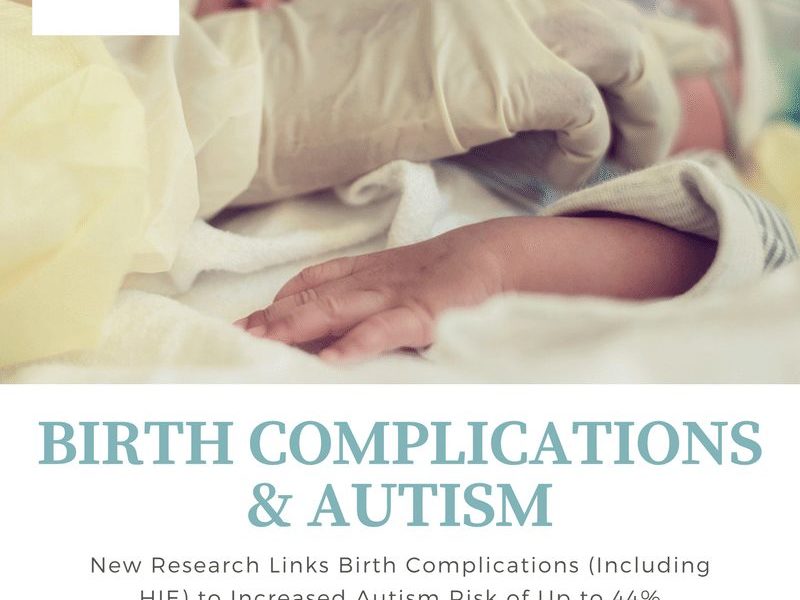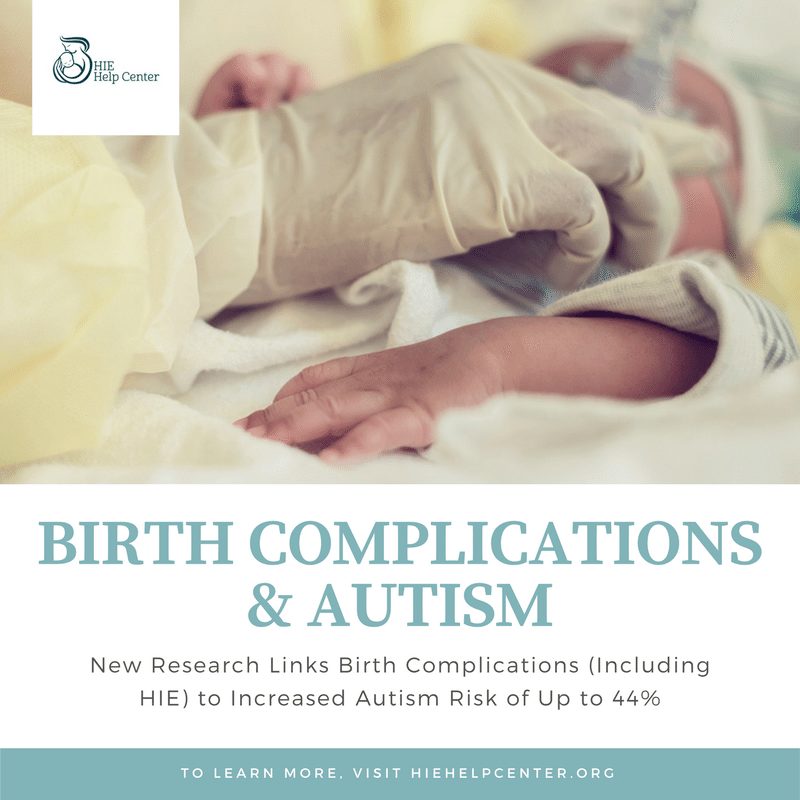Researchers from the Kaiser Permanente health group published the results of a study linking pregnancy complications and birth injuries to an increased risk of autism spectrum disorders (1). In particular, Darios Getahun and colleagues found that children were more likely to develop autism if they had been deprived of oxygen at birth (i.e. experienced birth asphyxia, which can lead to hypoxic-ischemic encephalopathy).
The researchers assessed 594,638 births over the 18-year period between 1991 and 2009. 6,255 of these children were diagnosed with autism spectrum disorders (ASD).
Of the 6,225 children diagnosed with autism in the study, 37% had complications during the perinatal period. Children with complications during delivery had a 10% higher autism risk; children with complications during pregnancy (before labor began) had a 22% higher autism risk, and children with complications during both the prenatal period and during delivery had a 44% greater autism risk (1).
According to lead author Dr. Darios Getahun, the findings held “even after adjusting for factors such as gestational age at birth and a mother’s age, race, and education” (2).
What factors increased the risk of autism?
The authors found a higher risk of autism in children who had experienced the following complications while in utero or around the time of birth:
- Birth asphyxia (oxygen deprivation)
- Preeclampsia
- Fetal malpresentations:
- Breech position
- Transverse (sideways) position
- Fetal dystocia
Alycia Halladay, chief science officer at the Autism Science Foundation, told HealthDay that the study “adds to a growing literature” on obstetrical complications and the risk of ASD. She further stresses the importance of early intervention for optimal outcomes, stating that “all children, but especially those at elevated risk, should be screened for autism at 18 and 24 months and followed closely throughout development to ensure they receive the services and interventions they need as soon as possible” (3).
Getahun et al. explain the utility of their study: “This study raises the potential for early identification of at-risk children who could benefit from further surveillance and interventions…Early identification of at-risk children is critical because early intervention with behavioral and developmental therapy in very young children with ASD can result in better long-term cognitive and behavioral function” (1).
About the HIE Help Center and ABC Law Centers
The HIE Help Center is run by ABC Law Centers, a medical malpractice firm exclusively handling cases involving HIE and other birth injuries. Our lawyers have over 100 years of combined experience with this type of law, and have been advocating for children with HIE and related disabilities since the firm’s inception in 1997.
We are passionate about helping families obtain the compensation necessary to cover their extensive medical bills, loss of wages (if one or both parents have to miss work in order to care for their child), assistive technology, and other necessities.
If you suspect your child’s HIE may have been caused by medical negligence, please contact us today to learn more about pursuing a case. We provide free legal consultations, during which we will inform you of your legal optionsand answer any questions you have. Moreover, you would pay nothing throughout the entire legal process unless we obtain a favorable settlement.
You are also welcome to reach out to us with inquiries that are not related to malpractice. We cannot provide individualized medical advice, but we’re happy to track down informational resources for you.
References
- Getahun, D., Fassett, M. J., Peltier, M. R., Wing, D. A., Xiang, A. H., Chiu, V., & Jacobsen, S. J. (2017). Association of perinatal risk factors with autism spectrum disorder. American journal of perinatology, 7(03), 295-304.
- Children exposed to complications at birth at risk of autism, study finds. (2017, January 31). Retrieved June 13, 2019, from https://www.sciencedaily.com/releases/2017/01/170131124140.htm
- Dallas, M. E. (2017, February 03). Obstetric Complications Tied to Slightly Upped Risk for Autism. Retrieved June 13, 2019, from https://consumer.healthday.com/cognitive-health-information-26/autism-news-51/obstetric-complications-tied-to-slightly-upped-risk-for-autism-719215.html



Leave a Reply
You must be logged in to post a comment.